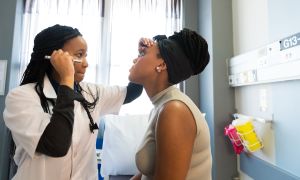When you have diabetes, you want to land fish on your plate, especially fatty, cold-water fish. Sardines and other small, fatty fish are high in essential omega-3 fatty acids that our bodies can only get from the food we eat. Sardines and other omega-3-rich fish help in a couple of ways: They're a great source of fat and protein to slow absorption of blood sugars, and they help protect your cardiovascular system, which irregular blood sugar fluctuations that can come with diabetes can damage. The healthy fat in sardines is good for your brain, too, and may help fend off Alzheimer's disease and dementia.
Continue Learning about Diabetes
Important: This content reflects information from various individuals and organizations and may offer alternative or opposing points of view. It should not be used for medical advice, diagnosis or treatment. As always, you should consult with your healthcare provider about your specific health needs.



